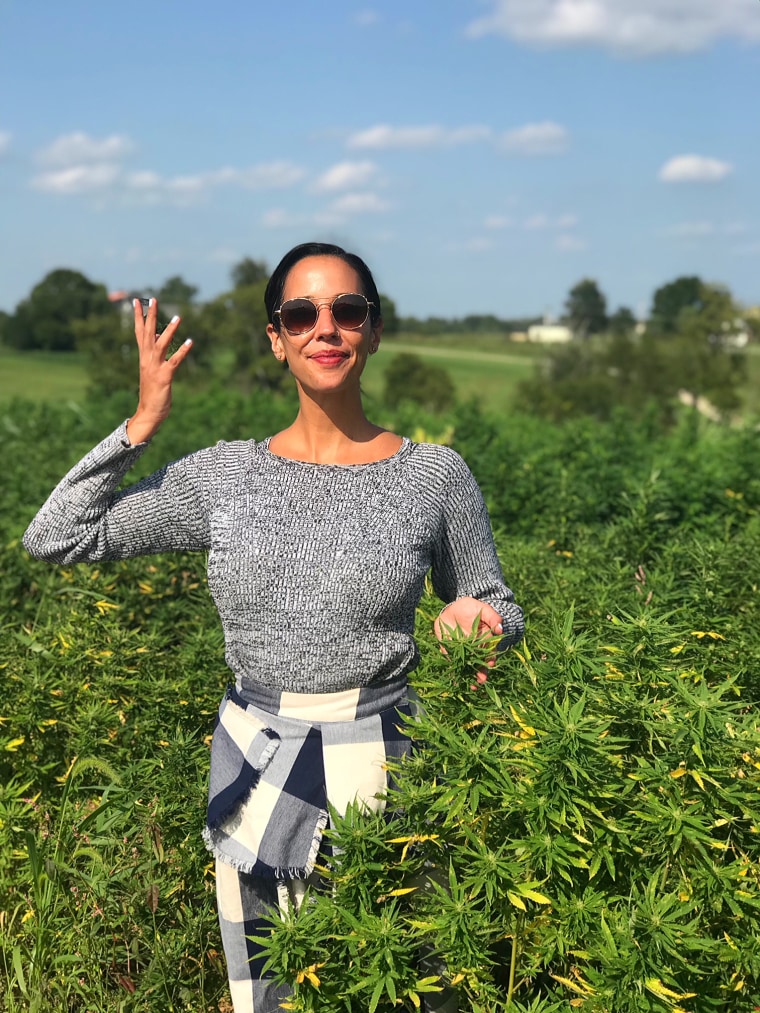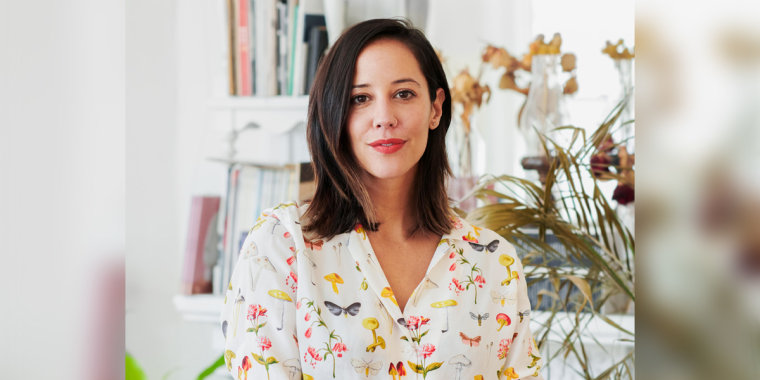With CBD use and marijuana legalization proliferating in the U.S., there has been a lot of misinformation about its safety and effectiveness. The industry was desperate for experts.
Enter Dr. Alex Capano, the first person to earn a Ph.D. in cannabinoid studies. After many years of working as a nurse practitioner (she is still certified), Capano became fascinated with cannabis’ potential to help with a host of issues, including pain, sleep disorders, anxiety and opioid withdrawals.
“I observed patients, and I was reading case studies highlighting the potential therapeutic aspects of cannabis — mostly CBD — and it was very obvious that there was a major knowledge gap with clinicians and also a stigma,” said Capano during an interview with Know Your Value. “I thought I could close that gap and hopefully help patients gain access to this if it was helpful for them.”
RELATED: Dr. Madelyn Fernstrom: 4 things to know before trying CBD
Cannabis is a broad term for the flowering plant. It contains the cannabinoids THC and CBD. Though they both have healing properties, THC creates psychotropic effects, while CBD does not. Meanwhile, hemp is a sustainable cannabis crop used in textiles. It’s high in CBD and low in THC, making it very valuable to the burgeoning cannabinoids industry. Marijuana, on the other hand, has the opposite composition.
Industries and speculations have been built around CBD and hemp, but there is still so much we don’t know. Gummies containing CBD at the grocery store, for example, claim to cure anxiety. Massage oils and coffee additives supposedly help you relax, but these claims are not legally substantiated. In fact, Capano said you might be wasting your money on some of these products. Eating CBD lowers its efficacy, and a lot of products don’t contain medical-grade CBD or adequate doses.
“We're closer than we've ever been. There are certainly a lot of gaps to fill in research,” said Capano, who is based in Philadelphia. “The good news is, the scientific community is pretty confident about CBD's safety, so that opens a lot of avenues for research ... but there are answers that we don’t have yet. I see online this temptation for people to kind of make up answers and pull them out of thin air, and I won’t do that because it's not evidence-based.”

Capano approached her school, Thomas Jefferson University, about writing a dissertation on cannabis. Surprisingly, the administration didn’t squirm. In fact, at the time, the school was opening the first comprehensive medical school for cannabis studies called The Lambert Center for the Study of Medicinal Cannabis and Hemp. She got the green light.
“I was in the right place at the right time,” said Capano, who received her degree in 2017. “They happened to be opening the center when I asked. It was serendipitous. I had no idea if they were going to hand me a drug screen and tell me to go pee in a cup. But it went completely the opposite way.”
The industry was booming, too. The 2018 U.S. Farm Bill legalized the production of CBD and hemp. Legal sales of marijuana have skyrocketed since, with profits projected to hit $30 billion in 2030.
“The explosion happened, and I have my pick of job offers,” Capano said. “I had been frustrated with the lack of upward mobility in my career... There's so much potential here therapeutically and financially. For women in STEM, we're sometimes held back from opportunities that are financially lucrative, or maybe felt like we had to do something for the greater good and have to be scraping by, and I didn't want that anymore.”
Capano, 34, is now chief science officer at the hemp company Ecofibre Limited, where she lectures at conferences, develops product in the lab, researches and more.
Capano grew up in Delaware, then trained to be a nurse practitioner at the University of Miami and the University of Pennsylvania. She worked as a primary care provider for five years. She still keeps her license active, but it’s not her main source of income.
“As a nurse practitioner do have the same job as a family doctor, you have the same responsibility, but you don’t have the same earning potential,” Capano said. “I really liked what I was doing, but we’re underpaid. There’s no partner track. I was tired of scraping by.”

Capano said that women in STEM are often held back from financial success.
“The wage gap is very real, especially in science,” said Capano. “I have some brilliant colleagues in STEM who are paid less than their male colleagues. I also think that there's this cultural pressure for women to be caretakers and maybe exclusively caretakers. If we say out loud that we want to make money, it's frowned upon...It's okay to say ‘I want to provide for my family and be the breadwinner, get a return on investment for the schooling I had and the brain I have.’ You don’t have to step on other people you don’t have to apologize for wanting financial security.”
RELATED: 10 awesome books for young girls that encourage and celebrate STEM
The cannabis industry is flourishing, but there’s still lots of work to do. So far, the FDA has only approved CBD use for a rare children’s epilepsy syndrome called Lennox–Gastaut. Everything else is unconfirmed. Capano is on the front lines trying to change that.
“We're getting there,” said Capano. “It's so large what the FDA has to look at because they don’t just have to look at regulations for products, but also employee drug testing policies. They're busy. It's going to take a while.”
